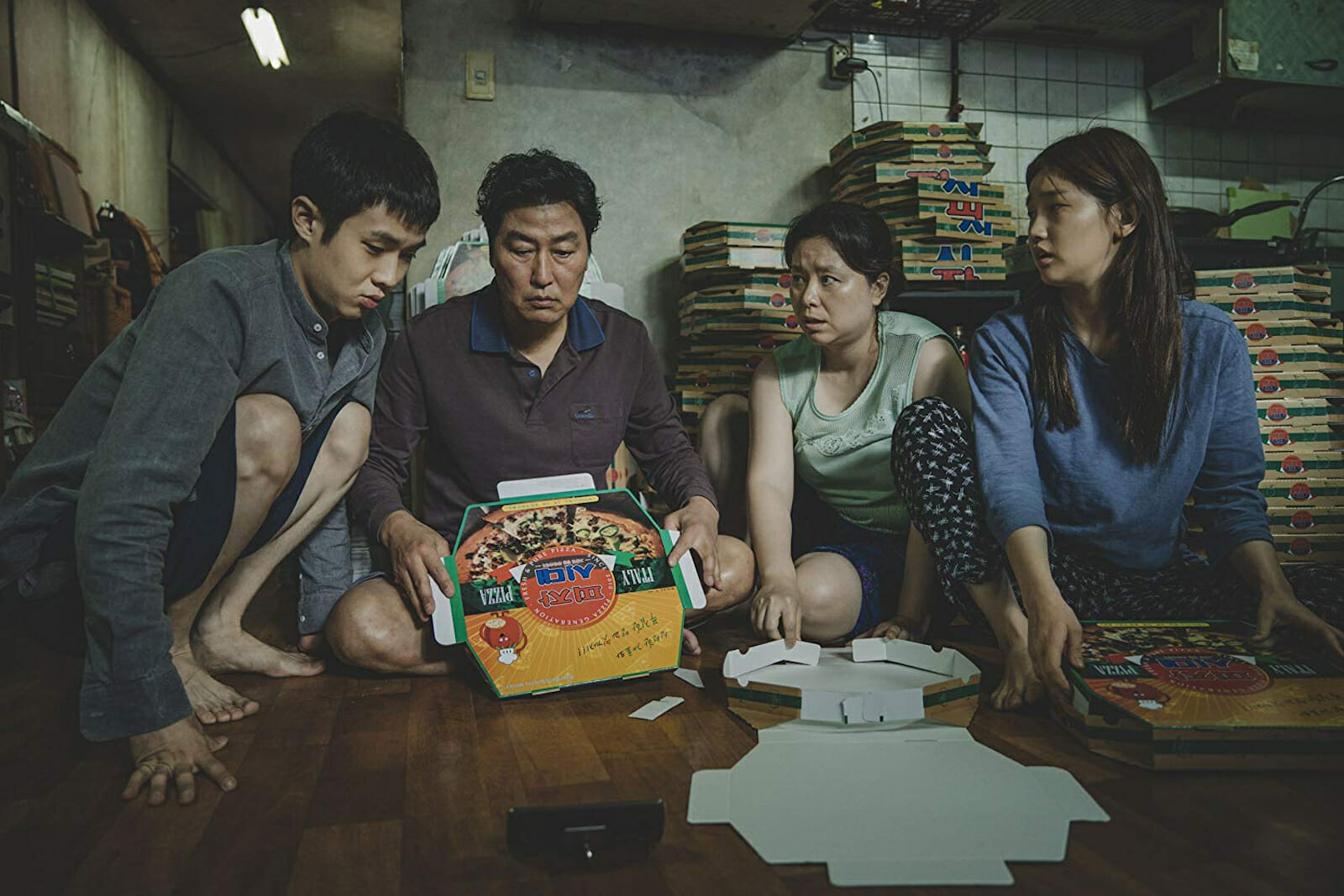
‘Parasite’ Review
South Korea is well known for its horror cinema. Bong Joon-ho’s Parasite isn’t a horror film per se, though it does have subterranean surprises and a horrific climax.
Parasite follows the squalid Kim family. Through a lucky connection, Ki-Woo (Woo-Sik Choi) manages to get a tutoring job. He then plots to hook up his father (Kim Kae-Taek), mother (Hye-Jin Jang) and sister (So-Dam Park) with other positions.
The client is the wealthy Park family, comprised of the tech CEO patriarch (Park Dong-Ik), in-over-her-head mother (Yeo-Jeung Jo), bored teenage daughter (Ji-So Jung) and hyperactive youngster (Hyun-Jun Jung). In other words, the cliche silver-screen wealthy family.
The Kims and Parks live in two different worlds. The former live lives of worrying where their next check is going to come from, in a tiny house in the middle of a flood zone. Meanwhile, the Parks are ensconced in a glass bubble of comfort and greenery, atop a steep hill. One must wonder if Bong Joon-ho intended to make an ecological-inequality statement with this choice of settings.
The class dichotomy also informs how the two families interact with each other. The Park family head comments about how the Kim patriarch smells like “people on the subway.” Another character cons her way into a therapist-teacher job by parroting the popular new-age buzzwords in her interview after doing some quick Google research, bringing her naïve interviewer to tears. Ki-Woo expresses unease to his friend and his student about being accepted in the circle of the affluent. It’s worth noticing that the Kim family is much older than the Park family. South Korea has the highest elderly poverty rate of the 34 OECD countries, in part due to the explosion of its elderly population and the steep decline in its birth rate. This dichotomy, along with high youth unemployment (which is mentioned by Kim Kae-Taek’s character) means that there are fewer and fewer young people to support more and more old people.
These economic factors diminish working-class solidarity. Ki-Woo’s family gets their jobs by stealing them from fellow blue-collar workers through devious backstabbing. There’s a very brief scene where a neighbor with a bicycle asks the Kim family for help in the midst of a natural disaster.
Though ultimately insignificant to the plot, Bong Joon-ho must have inserted it to illustrate the cutthroat nature of living life on the margins. Without giving away the ending, it would have been much less macabre if the Kims and another house-servant couple had been able to come to an agreement.
Parasite, through its title, suggests the extraction of something vital from one party to another. Though extreme wealth inequality can institute this relationship between the ultra-wealthy and the have-not’s living under them, it can also go the other way. Kim Kae-Taek’s character exclaims at one point that, “The amount of money coming from their house into ours is immense!” Extreme inequality fosters an environment of selfishness that touches everyone.
We are seeing examples of Hollywood anti-rich fantasies in recent hits like Hustlers and Joker. I point this not to condemn these works of art (or the people who watch them), but rather to point out the popular general sentiment that they reflect. Bong Joon-ho has been exploring the class dynamics of noblesse cluelessness and hypocrisy since his 1994 short Incoherence and, most notably, in Snowpiercer. Parasite is his most coherent and masterful take on these themes yet.
